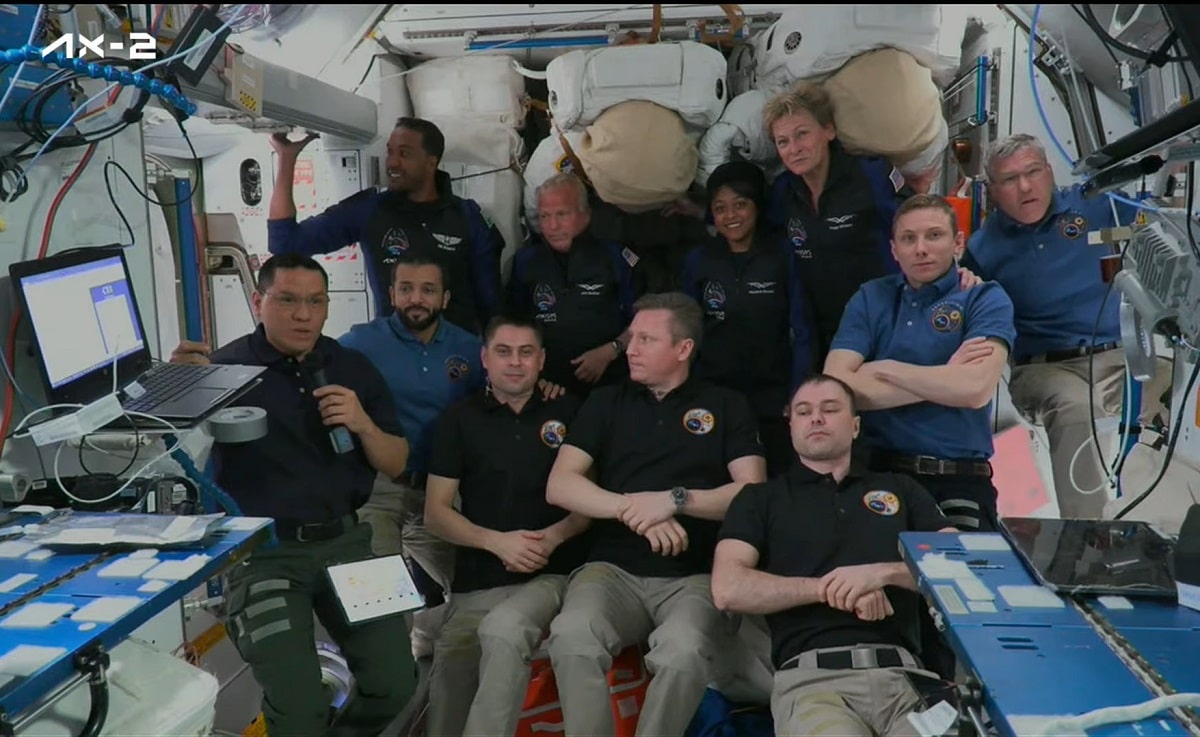Saudi astronauts Rayyanah Barnawi and Ali Al Qarni and mission team crew arrived at the International Space Station (ISS) today at 4.25pm Makkah Time after their spacecraft Dragon 2 successfully docked.
NASA has announced the successful docking of Dragon 2 after 16 hours of the rocket launch yesterday from NASA’s Kennedy Space Centre at Cape Canaveral, Florida.
Saudi astronauts in space
It is a historic moment for the Kingdom of Saudi Arabia, which is now the first Arabic country to send a woman on a space scientific mission just as it is also one of the few countries with two astronauts on board the ISS simultaneously.
The mission crew, consisting of four astronauts, Rayyanah Barnawi, Ali AlQarni, Peggy Whiston and John Shoffner, was welcomed and greeted by the International Space Station team, including the UAE’s Sultan Al Neyadi, that wished them success.
Upon arrival, the mission crew of AX-2 changed their space suits and joined the ISS team preparing to carry out their mission in space, where they will conduct 14 pioneering research experiments in microgravity that are set to have an important scientific impact.
The studies that will take place in space by the two Saudi astronauts range from human research and cell science to artificial rain in microgravity in order to develop space science and progress in sending more manned spacecraft to the moon and to Mars.
In addition, the Saudi astronauts will also conduct three educational awareness experiments. This space programme has placed the Kingdom as an important player in the global space science research community and as a main investor in the service of humanity and its future.
The Saudi Space Commission confirmed that the astronauts, Rayyanah Barnawi and Ali AlQarni, are fully trained and prepared to carry out their mission in space. SSC is also confident that they will accomplish the mission planned successfully and return safely to earth
The efforts by the SSC are designed to prepare future astronauts and engineers through quality educational and training programs, participation in scientific experiments, international research, and future space-related missions – all of which will contribute to raising the status of the Kingdom and to achieving the goals of Vision 2030
The results of which will enhance the Kingdom’s global position within the field of space exploration and service to humanity. It will also confirm the role of Saudi research centers in making a scientific impact in this field.








